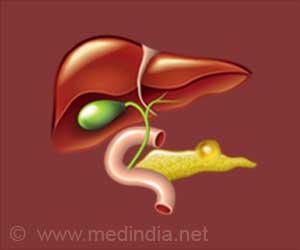
‘Few patients diagnosed with pancreatic cancer have identifiable risk factors. New research is being conducted that could help scientists combat pancreatic cancer.’
Tweet it Now
The results of the study were published in a paper for Sept. 14 in the journal Science. The study may lead to clinical trials in humans. And if antibiotics are found to kill the bacteria in pancreatic patients, chemotherapy may become more effective, giving patients more hope and more life. "Understanding tumor microbiology will help us improve our existing chemotherapies treatments for cancer patients, says Danino, a biomedical engineering professor at Columbia Engineering."
Danino is known for genetically engineering bacteria to treat cancers, part of a field called synthetic biology. In this study, however, he and his collaborators took a different approach: analyzing micro-sized bacteria that hobble a widely-used chemo drug. Irrespective of his approach, though, his intent is the same: to merge biology and data science for greater good of society.
"The goal of our research is to use novel techniques for social good and to improve the health of many people," he says. "Data science combined with experimental approaches provides an exciting path to doing so."
Source-Eurekalert














